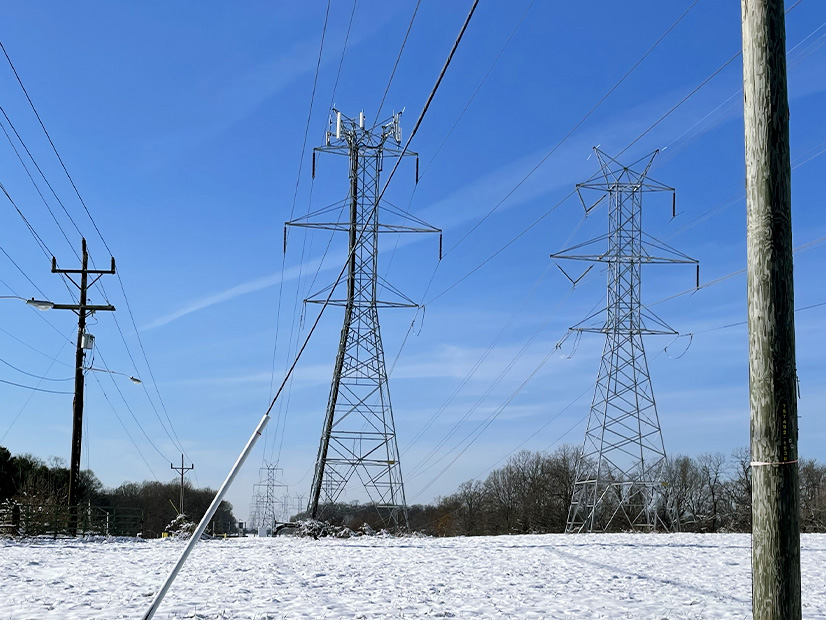As snow and freezing temperatures enveloped the Central and Southeastern U.S. on Jan. 10, NERC’s Board of Trustees met virtually to exercise for the second time their authority to streamline the ERO’s stakeholder approval process in hopes of passing a cold weather standard before a FERC-imposed deadline in March.
The board voted unanimously to invoke Section 321 of NERC’s Rules of Procedure, as recommended by the organization’s Regulatory Oversight Committee at its own special meeting before the board’s. The trustees’ decision was not a surprise, as NERC management has previously warned that the normal ballot and revision process was unlikely to produce a suitable revision to EOP-012-2 (Extreme cold weather preparedness and operations) in time to satisfy FERC’s directive. (See NERC: Board’s 321 Authority on the Table for Cold Weather Standard.)
FERC approved EOP-012-2 (itself a revision ordered by the commission to address shortcomings of EOP-012-1) in June 2024, but it ordered additional “targeted modifications” to be completed by March 27, 2025. Although NERC has been working on the revisions since then, the replacement standard, EOP-012-3, garnered only a 44.54% segment-weighted vote for approval in its most recent formal ballot round that concluded Dec. 20.
Board Chair Kenneth DeFontes had noted that the result was “not even close to reaching the required two-thirds [required] approval under our normal process, and the clock is ticking.” He said the ballot results indicated an “impasse” that will likely not be cleared through NERC’s normal processes.
The board’s resolution directs NERC’s Standards Committee to work with stakeholders and ERO staff to prepare a standard that satisfies FERC’s order. If the committee is unable to draft a suitable standard, or determines that NERC’s management would be better suited to do so, then ERO management will write the standard. The standard will then be posted for a 45-day public comment period no later than Jan. 29.
After the comment period, NERC management will bring the standard, along with all public comments, to a special meeting of the board in March to vote on adoption or consider other steps. No further ballots will be held, although the board’s resolution called for continued stakeholder involvement in the drafting and commenting process.
This procedure differs from the last time NERC’s board invoked Section 321, to accelerate the development of PRC-029-1 (Frequency and voltage ride-through requirements for inverter-based resources) at its Aug. 15 meeting in Vancouver. (See “Board Invokes Standards Authority to Meet IBR Deadline,” NERC Board of Trustees/MRC Briefs: Aug. 15, 2024.) In that case, the board ordered the SC to conduct a technical conference to gain industry input on the proposed standard, then revise it and submit it for stakeholder ballot.
Under Section 321.2-321.4, a standard needs only a 60% segment-weighted approval to pass; for this reason, NERC staff have informally dubbed the plan used for PRC-029-1 the “60% path.” The process proposed for the cold weather standard is found in Section 321.5; because it resembles a rulemaking procedure more than a normal balloting process, NERC Vice President of Engineering and Standards Soo Jin Kim said staff have called this the “NOPR option,” referring to federal Notices of Proposed Rulemakings.
Trustee Sue Kelly noted that NERC already held a technical conference for this standard after it received a 42.29% segment-weighted approval vote in its first formal ballot round and that even though the conference had more than 400 attendees, the favorable vote only increased by just over 2%. Because of this, she said it seemed unlikely that enough industry support could be rallied in time to meet FERC’s requirement, even with another technical conference.
“I … looked at the summation of the comments from the last [ballot] round, and honestly, I was a little distressed to see that many of them are what I would describe, at this point in the game, as being off-topic,” Kelly said. She cited comments that said market forces should be enough to drive utilities to the right level of winterization, or that NERC did not have the statutory authority to create the standard “because it would have competitive implications for generators.”
“I found those comments pretty distressing, because when you step back and look where we are in this process — back in January 2014, NERC wanted to do a mandatory standard, and industry said, ‘No, let’s do a guideline,’” Kelly continued, noting that since that time, several severe winter storms have hit the U.S. with significant impacts to the grid. “We are way down the road at this point: We are being asked to [meet] specific FERC directives, [and] we’ve been told we have a time frame, and I believe that we … need to meet that challenge.”




